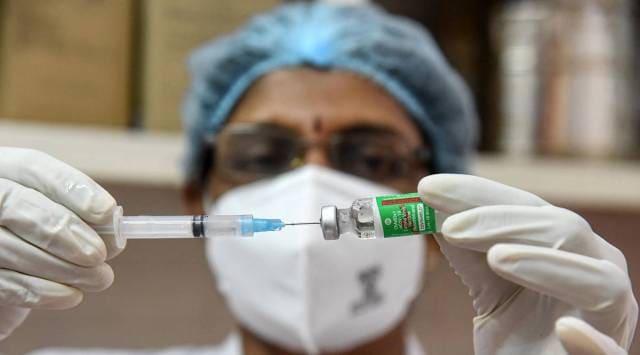- India
- International
Here’s a handy guide for all your COVID-19 vaccine queries
Before the jab, make sure you have had a meal and are well-hydrated, suggests a doctor
 Covishield is manufactured by Pune's Serum Institute of India under licence from AstraZeneca and the University of Oxford. (File)
Covishield is manufactured by Pune's Serum Institute of India under licence from AstraZeneca and the University of Oxford. (File)It is understandable that around the country while people have registered for the COVID-19 vaccine, there are some questions and confusions in their minds. We have already entered the second phase of the vaccination drive, which means a sizable chunk of the population has already received the jab.
If you are next in line and are looking for someone to answer your questions and clear your doubts, look no further. Dr Rahul Pandit, Director-Critical Care at Fortis Hospitals Mumbai, and member of Maharashtra’s COVID Taskforce has come up with a guideline for seniors above the age of 60, and those above 45 years of age with comorbidities.
Read on to understand better.
* All adults should take the COVID-19 vaccine and encourage others to take it as well.
* You should have had your meals, and should be well-hydrated for your vaccination.
* Only people with anaphylaxis (allergic reaction) to any of the vaccine contents should avoid taking the vaccine.

* All approved vaccines, including Covishield and Covaxin have:
– 100 per cent efficacy in preventing death due to COVID-19.
– Very high efficacy against severe COVID-19.
– High to moderate efficacy (60 per cent-95 per cent) against symptomatic COVID-19.
– Poor efficacy only against asymptomatic COVID-19.
* Vaccinating the high-risk vulnerable population — above 60 years and above 45 years with co-morbidities — will bring down the mortality rate to ‘very low’, as currently, this group forms almost 90 per cent of patients who succumb to the disease.
* People with previous COVID-19 infection should take the vaccine only after 8-12 weeks of recovery.
* A person who has received plasma therapy to treat a previous COVID-19 infection should wait for 8-12 weeks before taking the vaccine.
* Vaccine is safe in patients with hypertension, diabetes, renal failure, and heart disease, among those who have undergone bypass, post-angiography, and those on dialysis.
* In pregnant women, if the benefit outweighs the risks of the vaccine, then you may take the vaccine. A frontline pregnant worker should take the vaccine.
* There is no data on how long pregnancy should be avoided post-vaccination. As it is an inactivated or dead virus, it should be safe after 6-8 weeks of vaccination to conceive.
* Vaccine is safe among those with a food allergy, drug allergy (other than the vaccine components) and common allergic conditions like asthma, allergic rhinitis and allergic dermatitis. But consult your doctor before enrolling yourself.
* People on antiplatelet agents like aspirin and clopidogrel should take the COVID-19 vaccine without stopping their medication.
* Patients on blood thinners like warfarin or newer anticoagulation agents have a small risk of injection site swelling. Patients who are on these newer agents can skip their morning dose, take the vaccine and continue the next regular dose.
* Patients with neurological complications like stroke, Parkinson’s, dementia should take the vaccine as it is safe for them.
* Patients on immunosuppressants (patients who’ve undergone organ transplants) of any type can safely take the vaccine. Immune response, however, may not be complete. Check with your doctor before enrolling.
* It is false that alcohol is not allowed post-vaccine or that vaccine causes impotency or that vaccine will change the DNA of a person.
* There are currently no trials available on children, hence vaccination for those below 18 years can be delayed for now.
* Patients with cancer and those undergoing chemotherapy should consult their doctor and seek an appropriate window for vaccination between the chemotherapy cycles. Ideally, the patient should wait for at least four weeks post-chemotherapy to take their vaccine.
* Fever, body ache, dizziness, headaches are common symptoms post-vaccination.
* A simple paracetamol can be taken post-vaccination if required, and most symptoms would be well-controlled.
“The best way to get the right information is to speak with doctors at medical centres. Vaccine-induced immunity is as important as herd immunity,” says the doctor.
For more lifestyle news, follow us: Twitter: lifestyle_ie | Facebook: IE Lifestyle | Instagram: ie_lifestyle
Apr 28: Latest News
- 01
- 02
- 03
- 04
- 05



























